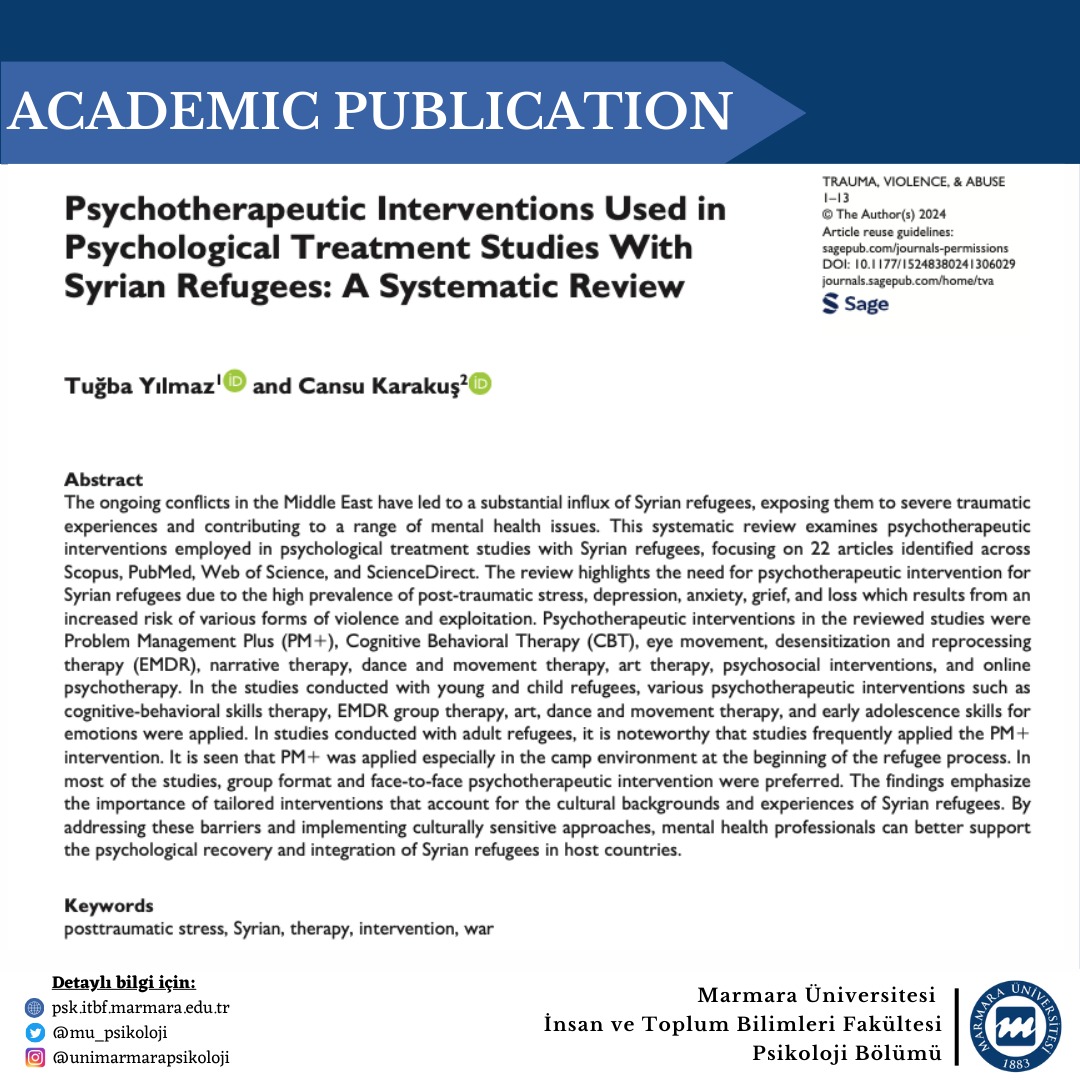
The systematic review study conducted by our department professor Assoc. Prof. Tuğba Yılmaz with Cansu Karakuş was published in the journal Trauma, Violence, and Abuse.
The ongoing conflicts in the Middle East have led to a significant influx of Syrian refugees, exposing them to serious traumatic experiences and opening the door to a range of mental health problems. This systematic review examined psychotherapeutic interventions used in psychological treatment studies with Syrian refugees, focusing on 22 articles identified in Scopus, PubMed, Web of Science, and ScienceDirect.
The review highlights the need for psychotherapeutic interventions for Syrian refugees due to the high prevalence of post-traumatic stress, depression, anxiety, grief, and loss resulting from the increased risk of various forms of violence and abuse. The psychotherapeutic interventions in the reviewed studies can be summarized as Problem Management Plus (PM+), Cognitive Behavioral Therapy (CBT), eye movement desensitization and reprocessing therapy (EMDR), narrative therapy, dance and movement therapy, art therapy, psychosocial interventions and online psychotherapy. In the studies conducted with young and child refugees, various psychotherapeutic interventions such as cognitive-behavioral skills therapy, EMDR group therapy, art, dance and movement therapy and early puberty skills for emotions were observed to be applied. In the studies conducted with adult refugees, it is noteworthy that the studies frequently applied the PM+ intervention. It was observed that PM+ was applied in the camp environment, especially at the beginning of the refugee process, and in most of the studies, group format and face-to-face psychotherapeutic intervention were preferred. The findings emphasize the importance of personalized interventions that take into account the cultural backgrounds and experiences of Syrian refugees. By addressing these barriers and implementing culturally sensitive approaches, mental health professionals can better support the psychological recovery and integration of Syrian refugees in their host countries.
Please click to access the article.
